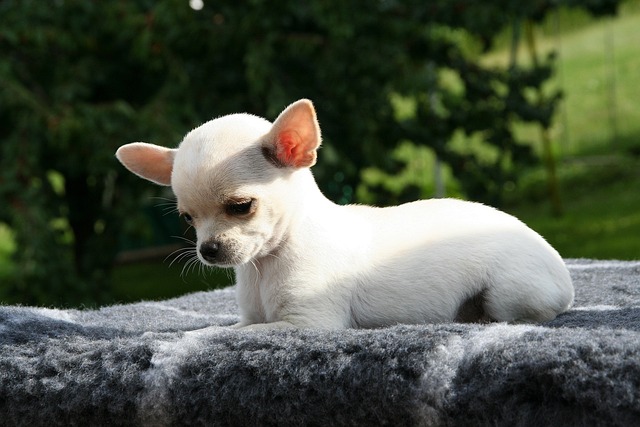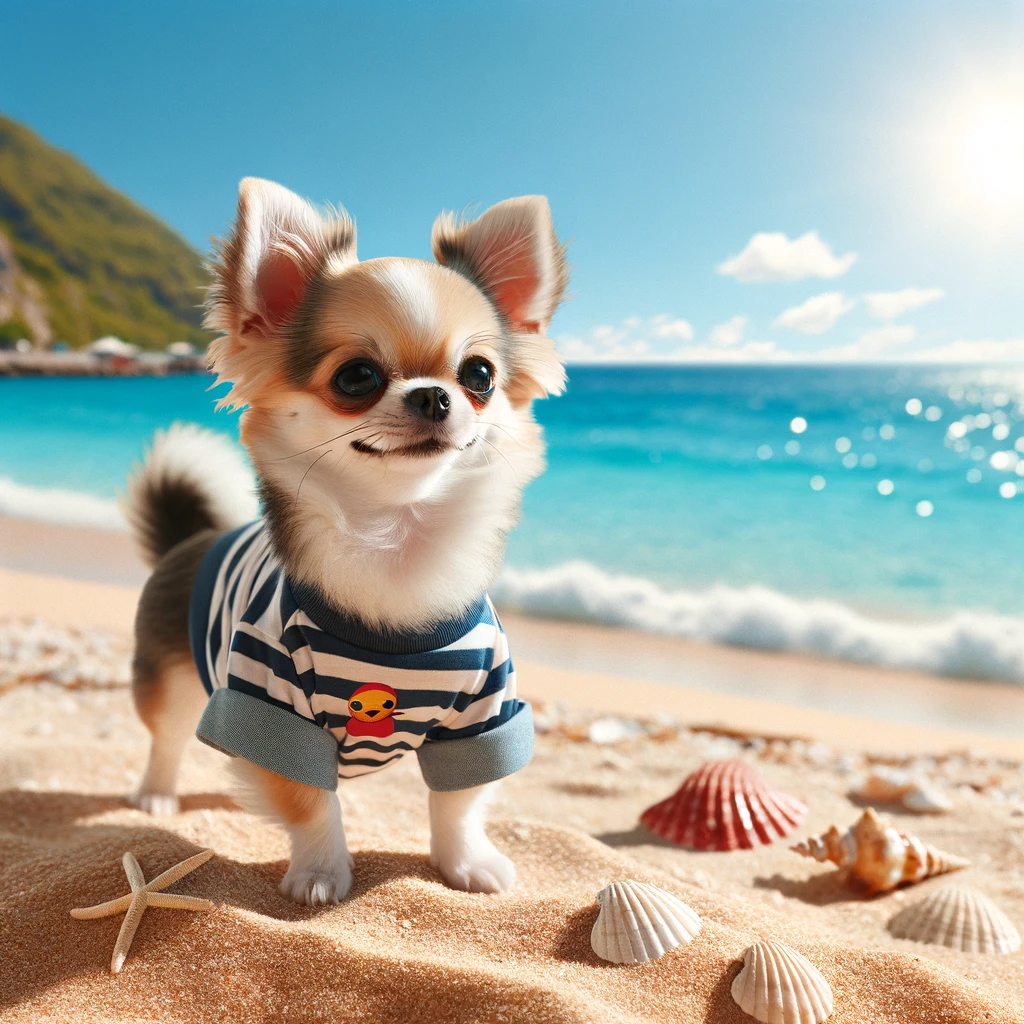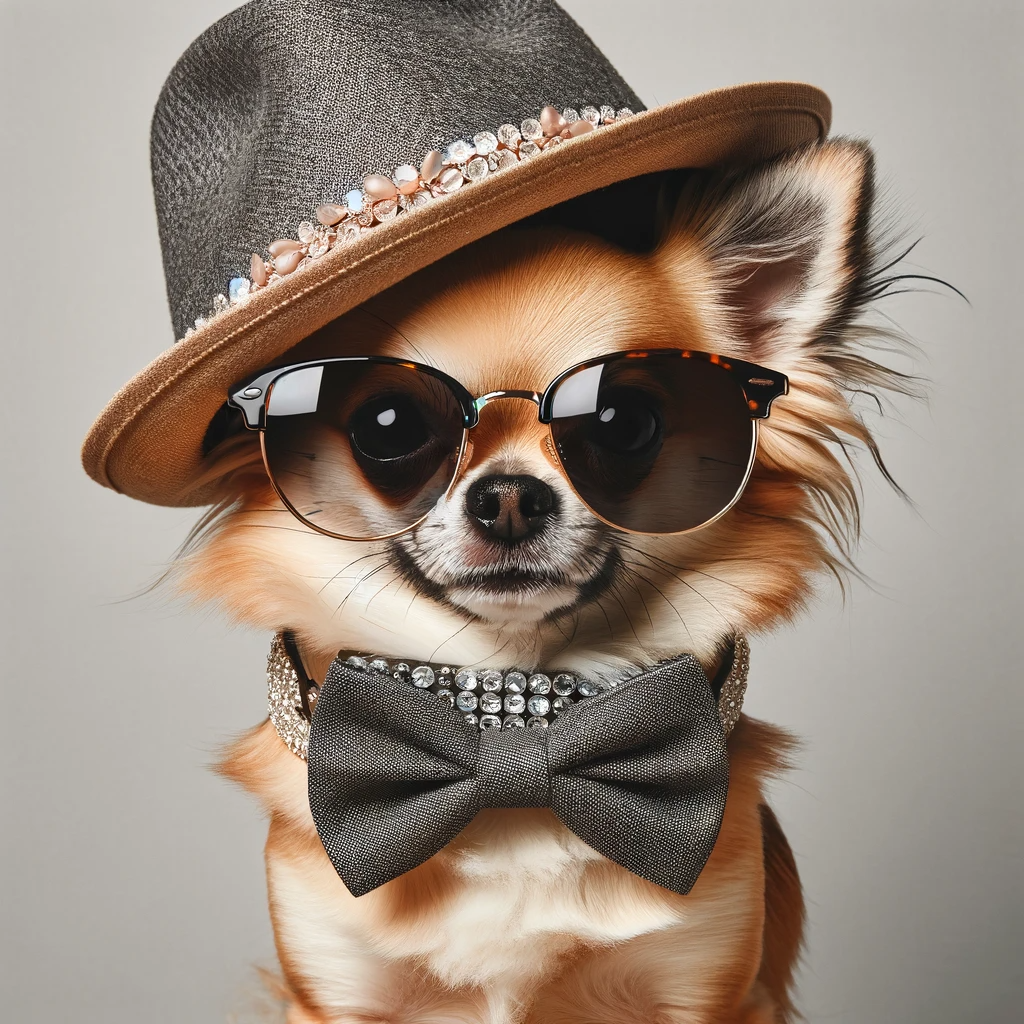Imagine you’re a tiny Chihuahua, your world is as big as your human’s love, and then bam! They vanish (okay, they go to work, but you don’t know that). What do you do? If you’re a Chihuahua with separation anxiety, you probably start your own home redecoration project, and spoiler alert – it’s not pretty. To help you treat and solve separation anxiety in Chihuahuas, read on and discover the best tips.
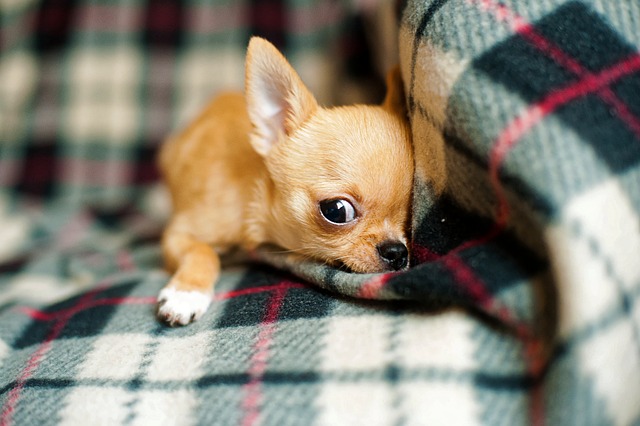
Is Your Chihuahua a Secret Chaos Agent? How to Tell
Here’s a quick rundown on how to spot separation anxiety in Chihuahuas:
- Carpet Digger Extraordinaire: If your carpets look like they’ve been through an archaeological dig, it’s a sign. Chihuahuas who deal with separation anxiety often ruin home items and chew on furniture. Besides chewing your carpet, you can find your bed ruined when you get back home. So, make sure to react on time if this happens.
- Velcro Dog Syndrome: Does your Chihuahua stick to you closer than your shadow? Yep, that’s another clue. If your Chi follows you even when you go to the bathroom, then she/she is probably afraid of spending time alone. Clinginess in chihuahuas can be induced by separation anxiety.
- Overenthusiastic Greetings: If coming home feels like a celebrity meet-and-greet, take note. When your Chis jumps on you and bark uncontrollably when you arrive home, then make sure you stay calm until the end of the ‘’show’’.
- Indoor ‘Surprises’: Finding ‘gifts’ on the carpet? That’s a red flag.
- Solo Howl Concerts: If your neighbors know when you’re gone by the howling serenades, bingo. A Chihuahua who howls and barks every time you live the house probably suffers from separation anxiety. There’s only way to discover whether she/he’s doing it. 1. Ask your neighbors. 2. Install a dog camera so you can follow your dog’s behavior while you’re at work.
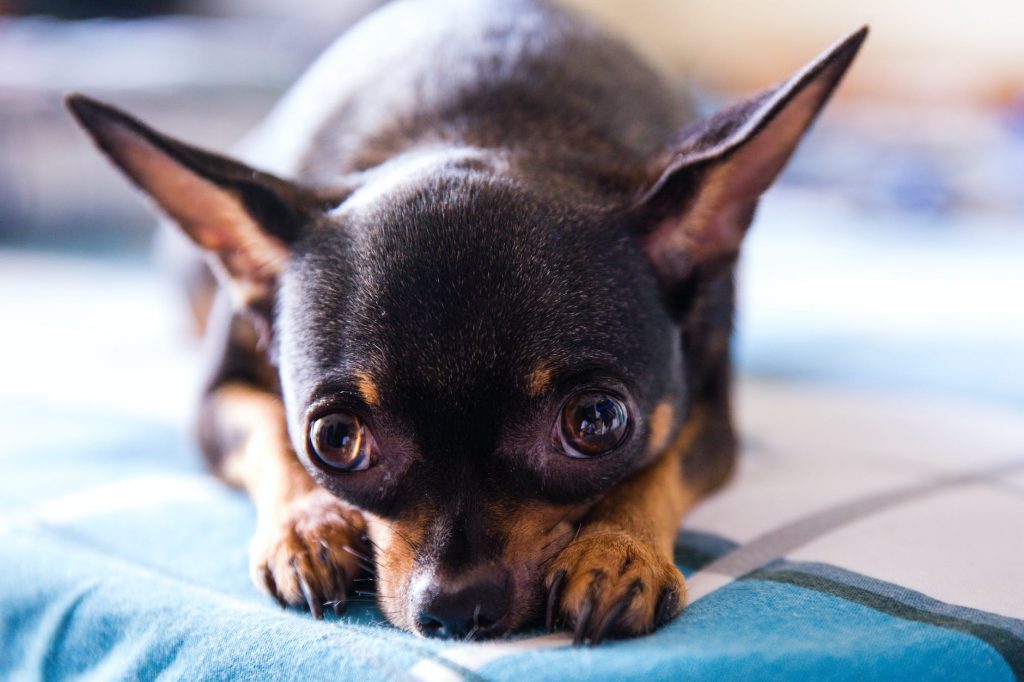
What’s Freaking Out Your Chihuahua? The Triggers
Here are some reasons why your Chihuahua might be freaking out:
New Home, Who Dis?: Moving houses or changing owners can be a big deal. Chihuahuas don’t come with an understanding of real estate.
Past Traumas: A rough past can lead to present anxieties in dogs.
Losing a Loved One: Just like humans, Chihuahuas grieve too.
Routine Shuffle: Dogs love predictability. Change their routine, and you might just change their mood.
Mission: Calming Your Chihuahua
Alright, now let’s get into the nitty-gritty of calming your furry Houdini:
Act Normal: Leave the house like it’s no biggie. The less drama, the better.
Baby Steps: Start by leaving them alone for just a bit, then gradually increase the time.
Tire Them Out: A good play session can lead to a peaceful home. Elastic Solid Rubber Chihuahua Interactive Toys is perfect for playing tug-of-war game. It will make your Chi pleasantly tired when you have to leave the house.
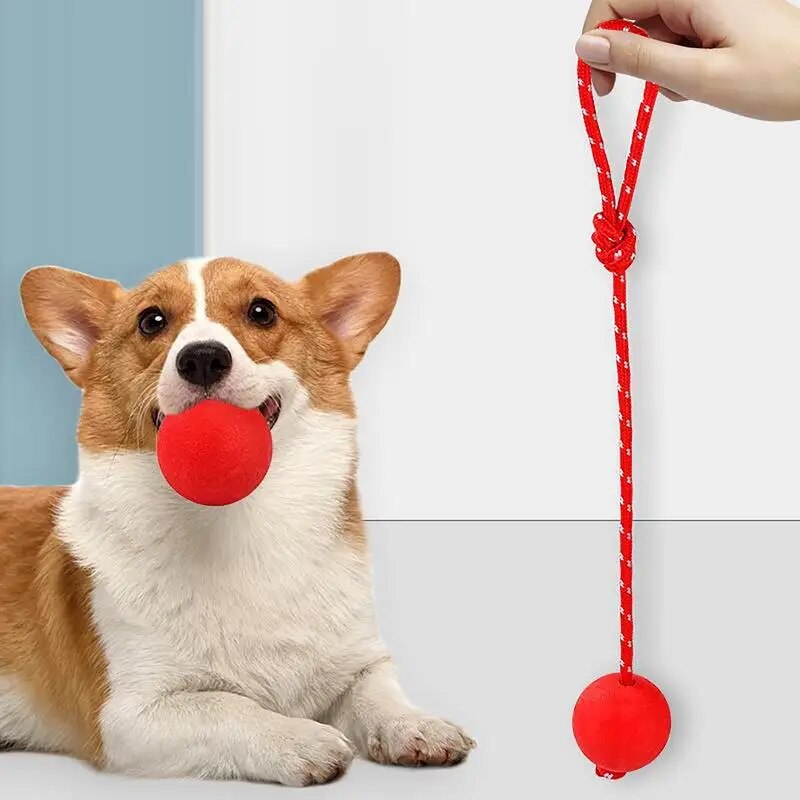
Distraction is Key: Puzzle toys can be a game-changer. They’re like doggy brain teasers.
Safe Haven: Create a cozy spot where they feel secure and loved. In this case, your Chihuahua’s bed can play a big role. Chihuahuas that suffer from separation anxiety often find the Banana Chihuahua Bed as one of the favorite spots to chill. Thanks to the lid on the top, they will feel safe and sound inside of it.
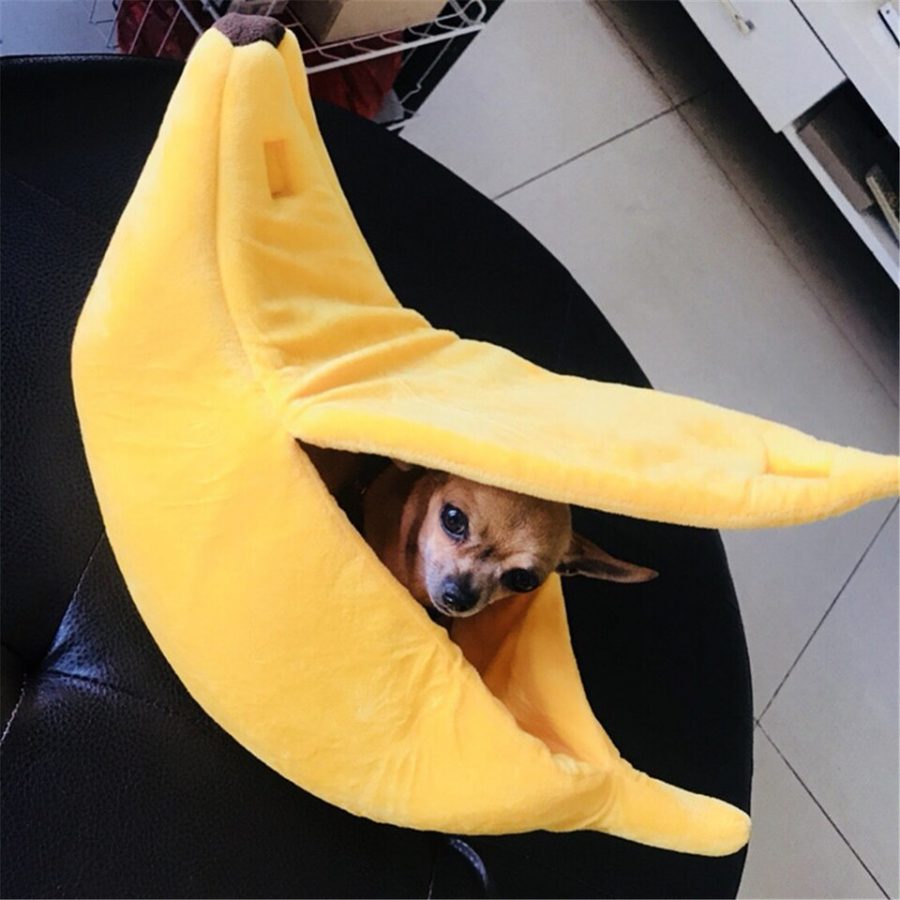
Scent of You: Your old T-shirt can be a comforting reminder of you. Items that carry your scent can provide your anxious Chihuahua will a feeling of safety.
Med Talk: In extreme cases, chat with your vet about possible meds.

Changing Your Departure Routine to Reduce Chihuahua’s Anxiety
Changing your departure routine can be an effective way to confuse your Chihuahua and reduce their anxiety when you have to leave the house. Here’s a step-by-step guide with examples on how to do it.
1. Identify Your Current Departure Routine
First, take note of your usual departure routine. This may include actions like putting on your coat, grabbing your keys, and saying goodbye in a specific way.
2. Create a List of Departure Cues
Make a list of all the cues that signal your departure to your Chihuahua. For example:
- Grabbing car keys
- Putting on shoes
- Picking up a bag or purse
- Saying a specific phrase like “be back soon”
- Giving your Chihuahua a treat before leaving
3. Randomize Departure Cues
To confuse your Chihuahua and reduce their anticipation of your departure, start randomizing these cues. Here are some examples:
- Grab your keys at various times during the day without leaving the house.
- Put on your coat and then continue with your usual activities indoors.
- Occasionally, say your departure phrase and then stay home.
4. Use Desensitization Techniques
Practice some departure cues without actually leaving. For instance:
- Pick up your bag, walk around the house, and then put the bag down.
- Wear your shoes inside the house for a while, then take them off.
- Grab your keys and sit down to watch TV.
5. Reward Calm Behavior
Whenever your Chihuahua remains calm during these randomized cues, reward them with treats, praise, or playtime. This reinforces the idea that these cues don’t always lead to your departure.
6. Create Fake Departures
Occasionally, go through the entire departure routine but don’t leave. For example:
- Put on your coat and shoes, grab your keys, and then sit on the couch to read a book.
- Say goodbye as if you’re leaving, then stay indoors and engage in another activity.
7. Gradually Extend Departure Time
As your Chihuahua becomes more accustomed to the randomized cues, you can gradually increase the duration of your fake departures. Start with a few minutes and work your way up to longer periods.
8. Vary Your Actual Departures
When you do need to leave the house, try not to make a big deal out of it. Avoid lengthy goodbyes or emotional farewells. Simply leave quietly and without fanfare.
9. Return Calmly
When you return home, greet your Chihuahua calmly. Avoid getting them overly excited or anxious by maintaining a low-key demeanor.
10. Consistency is Key
The key to success in changing your departure routine is consistency. Stick to the randomized cues and fake departures until your Chihuahua becomes less anxious about your comings and goings.
11. Monitor Progress
Keep a journal to track your Chihuahua’s reactions and progress over time. Note any improvements in their anxiety levels.
12. Seek Professional Help if Needed
If your Chihuahua’s anxiety persists despite your efforts, consider consulting with a professional dog trainer or a veterinarian for additional guidance.
By following these steps and consistently implementing them, you can successfully change your departure routine, confuse your Chihuahua in a positive way, and reduce their anxiety when you have to leave the house. Remember that patience and persistence are essential in helping your furry friend feel more at ease during your departures.
Pro Tips for a Peaceful Coexistence
- Background Noise: Leaving the TV or some tunes on can be comforting.
- Training Time: Teach them some basic commands to help manage their behavior.
- Play It Cool: Ignore them a bit when leaving or arriving to downplay your absence.
- Busy Bee Toys: Keep them engaged with interactive toys. Interactive toys for Chihuahuas such as the Chihuahua IQ Treat Trainer can be of great help. As your Chi rolls it, the egg will release the treats and your dog get rewarded.
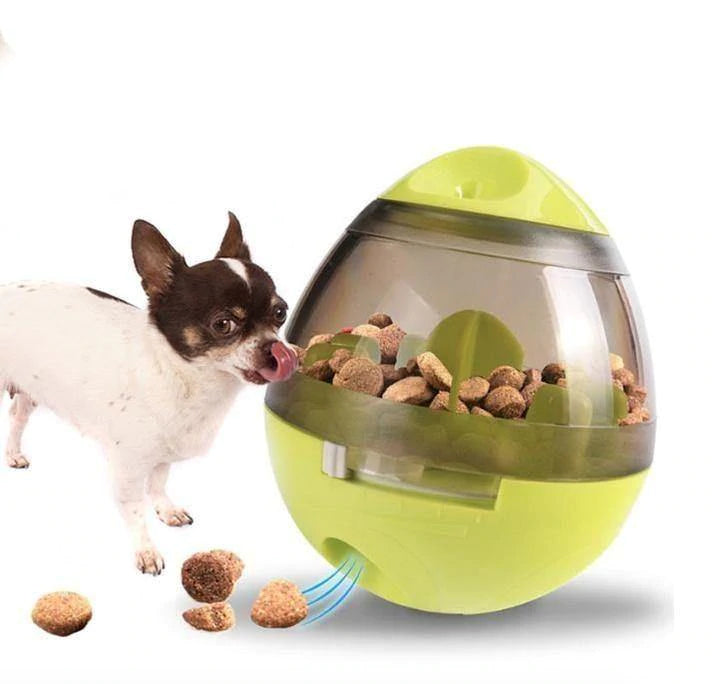
- Soothing Scents: Some good old lavender might just do the trick.
Separation anxiety in Chihuahuas: Wrapping up
Dealing with separation anxiety in your Chihuahua is a bit like teaching a toddler that it’s okay to play alone. It takes time, patience, and a whole lot of love. Remember, they’re not trying to be the bad guy; they’re just scared and missing their favorite human – you! Stick with it, and you’ll both find your way to a happier, less chaotic normal.
Separation anxiety in Chihuahuas can be a wild ride, but it’s definitely something you can manage. Keep an eye out for the signs, understand what freaks them out, and implement strategies to ease their worries. Your Chihuahua isn’t throwing a tantrum; they’re just going through a rough patch missing their best bud (that’s you!).
Every dog is different, so what works for one might not work for another. To help your Chihuahua deal with separation anxiety, it’s important to stay consistent, patient, and above all, keep loving your little bundle of furry chaos.
